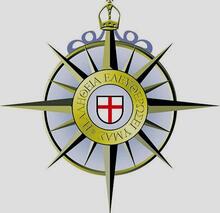As I write, Anglicans around the world are facing a variety of both internal and external challenges.

• Bishop Jay Behan of the Fellowship of Confessing Anglicans of New Zealand has publicly objected to the Conversion Practices Prohibition Bill there.
He argues that though it desires to support vulnerable people who feel unloved, it elevates state-mandated values above those of parents. Parents or legal guardians, especially those of faith, will risk criminal liability for raising their children according to their beliefs; it is contrary to fundamental rights and personal autonomy; it presents a false dichotomy that all gender affirmation is an unqualified good and all conversion therapies an unmitigated bad, and will adversely affect those it seeks to protect.
• Three Primates from Nigeria, Kenya and Uganda representing 36% of the members of the Anglican Communion are not expected to attend the next Primates meeting in November. They object to the continued participation of provinces which contravene agreed Biblical and Anglican teaching on marriage while those churches which abide by it, such as the Anglican Church in North America, are excluded.
• Bishops in Kenya have consecrated a woman as a bishop and the Diocese of Fort Worth in the USA has objected.
• Archbishop Idowu-Fearon, the secretary general of the Anglican Consultative Council announced his retirement for August 2022. His own Church of Nigeria disowned him when he was appointed in 2015 without prior consultation with them. This was for failing to stand with them against homosexual practice, as recorded in the book Peter Akinola: Who Blinks First, in which the former Nigerian Primate meticulously records the disagreements in the Anglican Communion about sexuality since 1998.
In a climate where anyone opposing prevailing ‘politically correct’ views is accused of being divisive and threatened with being silenced, it is part of the Anglican church’s identity – as a church within a particular culture – to be caught up in these struggles. Voices urging wholesome Biblical teaching must be heard and leaders must clearly indicate their distance from heretical behaviour. Disagreement and offence is the price of freedom. Such debates are not heard from the Chinese Communist Party.
Read here in Evangelicals Now November 2021
